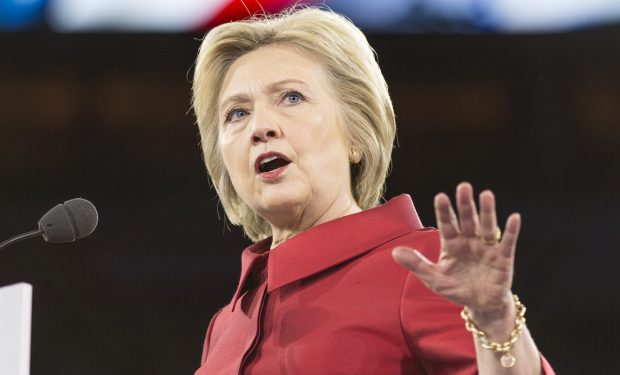Hillary Clinton has worn more hats in the public sphere than almost any other American political figure. The former First Lady, a Yale-educated lawyer, followed her White House tenure with a turn as a U.S. Senator from New York, before taking on the U.S. Secretary of State position in the Obama administration. Clinton then ran for President in 2016, losing to Donald Trump in an election that utterly reset the American political landscape.
Clinton is assessing that changed landscape and its drivers in a new article in The Atlantic, and what she finds — leaning on Surgeon General Vivek Murthy’s 2023 report entitled ‘Our Epidemic of Loneliness and Isolation‘ — is a bereft American citizenry plagued by a dangerous, volatile loneliness.
The epidemic, Clinton reports, is a result of a crumbling of America’s once interconnected communities — a crumbling that creates openings for power-hungry opportunists (e.g. MAGA star Steve Bannon) to exploit the disenfranchised people exposed by the breakdown.
In other words, Clinton — whose most famous book among the many she has written is It Takes A Village — returns to that iconic American village built on cooperation, common goals, and mutual prosperity, and she reports that her exemplary village is dying.
"An 'epidemic of loneliness' may sound abstract at a time when our democracy faces concrete and imminent threats, but the surgeon general’s report helps explain how we became so vulnerable," @HillaryClinton writes: https://t.co/Bpa1oY2DMf
— The Atlantic (@TheAtlantic) August 7, 2023
Worse, according to Clinton, the opportunists throwing the left-behind stragglers a lifeline have laced that lifeline with fear and vitriol, stoking anti-government and xenophobic anger and resentment in the name of faux patriotism instead of encouraging meaningful citizenship that lifts the community.
Having marshaled the anger of the lonely and disillusioned — very often young white males, as both she and her opponents concede — the opportunists then weaponize it, Clinton says, against healthy democracy, shutting down empathy and killing the village’s lifeblood. Clinton quotes Bannon: “You can activate that army. They come in through Gamergate or whatever and then get turned onto politics and Trump.”
[NOTE: What’s being tested by Bannon and company, at the core, is the truth of Bill Clinton‘s famous assertion: “You can’t say you love your country and hate your government.”]
For her essay, Clinton relies heavily on Murthy’s 2023 report, the introduction of which is tellingly titled ‘Why Connection Matters.’
Anyone paying attention has seen headlines recently about the “mental health crisis” in America — another sign that the Clinton’s crucial village, a storied source of mental sustenance and safety, is in its death throes.
Clinton published It Takes A Village in 1996, four years before Robert D. Putnam published his famous look at the American social fabric tearing apart in Bowling Alone: The Collapse and Revival of American Community.
A quarter of a century later, Clinton sees more of Putnam’s collapse and less of the revival of community in America. Clinton took her own book title from the proverb “It takes a village to raise a child” — a saying that reads like a lament today as she describes a riven 21st century American society that seems hard-pressed to care communally for its youth.
